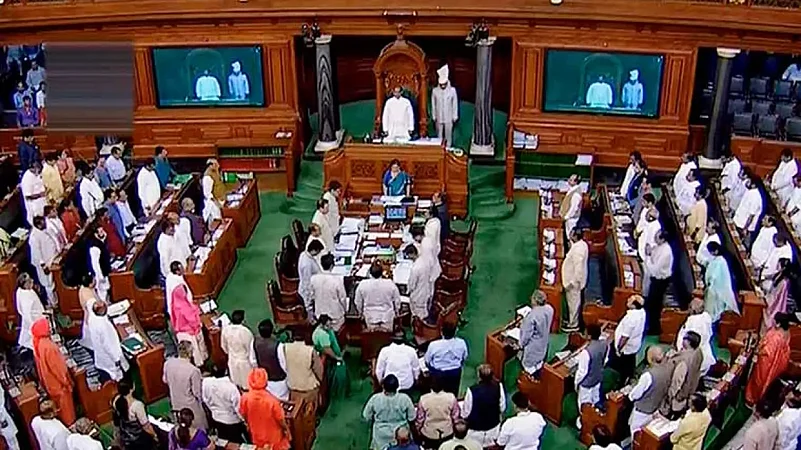Several words used by Congress leader Rahul Gandhi have been expunged by the Parliament during the heated speeches over the Adani-Hindenburg row. Similarly, opposition leader Mallikarjun Kharge raised a similar issue in the Parliament over Rajya Sabha chairperson Jaydeep Dhankar’s decision to expunge several of his remarks linking the increasing wealth of entrepreneur Gautam Adani with the Centre.
As many as 18 remarks made by Gandhi in connection with Adani in the Lok Sabha on Tuesday had also been expunged. And on Thursday, Kharge told Dhankhar that he had not said anything “unparliamentary or accusatory” in his speech for his remarks to be expunged.
What are the rules for expunging a speech?
Article 105(2) of the Constitution states that “no member of Parliament shall be liable to any proceedings in any court in respect of anything said or any vote given by him in Parliament or any committee thereof…”
However, under Rule 380 (“Expunction”) of the Rules of Procedure and Conduct of Business in Lok Sabha, it must be ensured that an MP must have check on what they say for the “good sense” of its Members and the control of proceedings by the Speaker. This restricts them from using unparliamentary, defamatory, and undignified language.
Rule 380 specifies that “if the Speaker is of opinion that words have been used in the debate which is defamatory or indecent or unparliamentary or undignified, the Speaker may while exercising discretion order that such words be expunged from the proceedings of the House.”
Additionally, Rule 381 states that “the portion of the proceedings of the House so expunged shall be marked by asterisks and an explanatory footnote shall be inserted in the proceedings as follows: ‘Expunged as ordered by the Chair’.”
What constitutes unparliamentary words?
‘Unparliamentary Expressions’, a bulky volume of book has been published by the Lok Sabha secretariat. The book lists words that are considered offensive and unparliamentary in most countries but also has words which are relatively harmless yet classified undignified.
In an interview to Indian Express, Lok Sabha Secretary General G C Malhotra said that the words were initially derived from phrases, part of various debates, which were declared unparliamentary by “the pre-Independence Central Legislative Assembly, Constituent Assembly of India, the Provisional Parliament, the first to the tenth Lok Sabha and Rajya Sabha, state legislatures, and Commonwealth parliaments like that of the United Kingdom”.
However, with the passing of time, more words have been added depending on the rulings of the Presiding officers.
For instance, last year, there was a massive uproar over certain words of common use being categorized as unparliamentary in a booklet by the Lok Sabha Secretariat.
Use of terms like 'jumlajeevi', 'Baal buddhi', 'Covid spreader' and 'Snoopgate' and even commonly used words like 'ashamed', 'abused, 'betrayed', 'corrupt', 'drama', 'hypocrisy' and 'incompetent' were considered unparliamentary in both the Lok Sabha and Rajya Sabha, according to the new booklet by the Lok Sabha Secretariat.
How are unparliamentary words expunged?
Based on the dignity of the members of the House and decorum, unparliamentary words are reported to the Presiding Officer or Speaker of the House by the head of the reporting section. They report the same by citing relevant reasons under the rules of the House.
Under Rule 380, the Speaker of the House exercises the right to declare them as unparliamentary and then sends back the same to the head of the reporting section. Following this, they remove the word from the records and mention it in the proceedings as “expunged as ordered by the chair”.
Later, the list of expunged words is compiled and sent to the Speaker’s office, Sansad TV and the editorial service with relevant reasons for their omission from the record.






















